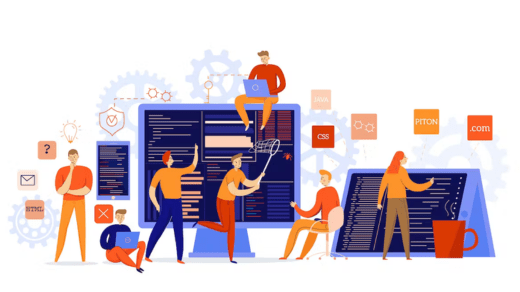
“A Beginner’s Guide to Open Source Software Contribution” is a valuable introduction to the world of open source development. Here are 15 key points about open source software contribution, along with their respective pros and cons:
A Beginner’s Guide to Open Source Software Contribution:
- Understanding Open Source: Learning the principles and philosophies of open source.
- Pros: Access to a global community, collaboration, and knowledge sharing.
- Cons: Potential complexity, differing ideologies, and learning curve.
- Choosing a Project: Selecting an open source project aligned with your interests and skills.
- Pros: Engagement, project relevance, and personal satisfaction.
- Cons: Project availability, competition, and compatibility.
- Learning the Basics: Gaining proficiency in the programming languages and tools used in the project.
- Pros: Improved coding skills, understanding of project requirements, and self-development.
- Cons: Time-consuming, skill gaps, and technical challenges.
- Contributing Documentation: Helping improve project documentation and user guides.
- Pros: User support, project clarity, and knowledge dissemination.
- Cons: Writing effort, potential inaccuracies, and language barriers.
- Bug Reporting: Identifying and reporting software issues, such as bugs or glitches.
- Pros: Improved software quality, user satisfaction, and issue tracking.
- Cons: Issue verification challenges, potential conflicts, and technical details.
- Testing and Quality Assurance: Participating in quality assurance and software testing.
- Pros: Enhanced software reliability, user experience, and quality.
- Cons: Time-consuming, technical expertise, and rigorous testing.
- User Support: Assisting users with their questions, issues, and troubleshooting.
- Pros: Improved user satisfaction, issue resolution, and communication skills.
- Cons: Time-consuming, technical support expertise, and potential frustration.
- Code Contributions: Writing, testing, and submitting code changes or new features.
- Pros: Tangible project impact, skill improvement, and code proficiency.
- Cons: Code review, compatibility challenges, and potential conflicts.
- Version Control: Learning and using version control systems like Git.
- Pros: Collaboration, code tracking, and version management.
- Cons: Learning curve, potential errors, and collaboration challenges.
- Issue Tracker Engagement: Becoming familiar with the project’s issue tracker and workflow.
- Pros: Efficient problem resolution, teamwork, and issue tracking.
- Cons: Workflow understanding, organizational challenges, and potential frustration.
- Community Engagement: Participating in the project’s online forums, mailing lists, and discussions.
- Pros: Networking, knowledge sharing, and community involvement.
- Cons: Time commitment, potential conflicts, and technical communication.
- Code Review: Engaging in code reviews to ensure code quality and adherence to project standards.
- Pros: Improved code quality, project cohesion, and learning from others.
- Cons: Time-consuming, critical feedback, and potential conflicts.
- Documentation Improvement: Enhancing project documentation and README files.
- Pros: Improved project understanding, user support, and knowledge sharing.
- Cons: Documentation challenges, accuracy concerns, and language barriers.
- Mentorship: Seeking guidance and mentorship from experienced contributors.
- Pros: Learning from experts, efficient skill development, and problem-solving.
- Cons: Availability of mentors, compatibility, and communication.
- Licensing and Legal Compliance: Understanding open source licenses and compliance.
- Pros: Legal knowledge, project alignment, and ethical development.
- Cons: License complexity, legal expertise, and potential restrictions.
Pros and Cons of Open Source Software Contribution:
Pros:
- Access to a Global Community: Open source offers a worldwide community of collaborators.
- Engagement: Contributing is engaging and fulfilling.
- User Support: Helping users improves their experience.
- Tangible Impact: Code contributions lead to real project impact.
- Quality Assurance: Testing enhances software reliability.
- Improved Skills: Contribution improves coding and communication skills.
- Networking: Community engagement builds valuable connections.
- Efficient Learning: Mentorship accelerates skill development.
- Knowledge Sharing: Open source projects promote sharing.
- Legal Knowledge: Understanding licensing is valuable.
Cons:
- Complexity: Open source can be complex and diverse.
- Learning Curve: Learning the ropes takes time and effort.
- Technical Challenges: Contributions may involve technical difficulties.
- Language Barriers: Communication may face language differences.
- Technical Details: Bug reporting may require deep technical knowledge.
- Code Review: Reviewing code can be time-consuming.
- Conflict Potential: Conflicts may arise in collaborative settings.
- Compatibility Challenges: Code contributions may face compatibility issues.
- Resource Availability: Availability of mentors and resources varies.
- License Complexity: Open source licenses can be intricate.
Open source software contribution offers an excellent opportunity to learn, collaborate, and make a meaningful impact on software projects. However, it comes with challenges, such as learning curves, potential conflicts, and technical complexities. Understanding these pros and cons is vital for a rewarding and productive contribution experience.

